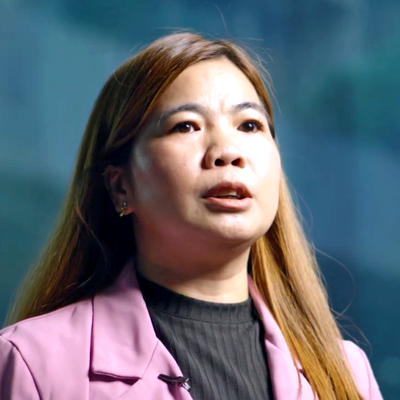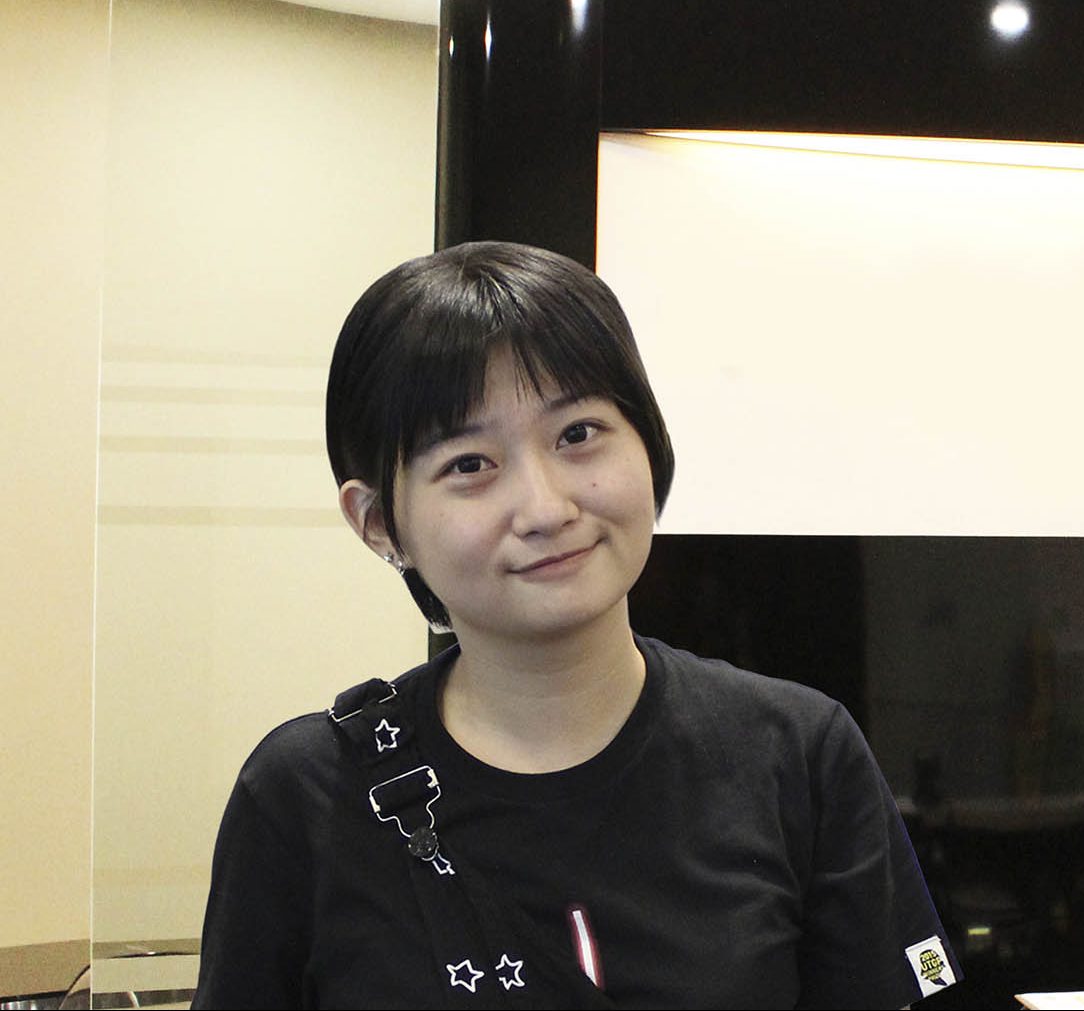
OVERVIEW
About This Programme

The Bachelor of Science (Honours) Computer Science, offered in partnership with the University of East London, prepares students to thrive in the rapidly evolving digital landscape. This programme equips students with a strong foundation in Computer Science theories and fundamentals, alongside practical skills in software development and programming to address complex technological challenges. Upon completion, the Bachelor of Science (Honours) Computer Science degree will be awarded by the University of East London.
Ranked 10th in London for Computer Science
Ranked 12th in UK for Teaching Quality, Good University Guide
LSBF is a Palo Alto Networks’ Authorized Cybersecurity Academy
Experience Amazon Web Service Cloud Technology
MODULES
Designed to explore beyond subject knowledge
The Bachelor of Science (Honours) in Computer Science offers a comprehensive understanding of core principles and emerging trends, balancing theoretical knowledge with practical application. The curriculum covers foundational topics such as programming, database systems, and data structures, alongside advanced subjects like artificial intelligence, mobile and distributed systems, and computing and network security.
Graduates will acquire specialised skills in software development, systems design, and application development, gaining hands-on experience through projects and practical exercises to address complex challenges in modern computing environments.
Information Systems Modelling & Design (Year 1)
This module equips students with the skills and techniques needed to analyse, model, and design information systems. It also addresses key legal, social, ethical, and professional issues related to information systems development, providing a well-rounded foundation in the discipline.
Software Development (Year 1)
This module introduces students to the fundamentals of designing, implementing, and testing software applications using a high-level programming language. Taught from first principles, it requires no prior programming experience. It covers programming essentials, including variables, control structures, arrays, and procedural programming methodology. It then introduces object-oriented programming concepts such as objects, classes, and inheritance, providing a strong foundation for future software development.
Maths for Computing (Year 1)
This module builds a fundamental understanding of mathematical concepts and skills essential for studying and applying computer science. Beginning with basic arithmetic and algebraic principles, the module lays the groundwork for their application across various areas of computer science.
Computer Systems & Networks (Year 1)
This module provides a foundational understanding of computer architecture, exploring the relationship between hardware and software components in a computer system. It also introduces the fundamentals of computer networking, equipping students with essential knowledge for understanding and managing networked systems.
Web Technologies (Year 1)
This module enables students to understand the requirements for web applications and select appropriate tools and techniques for their design and development. Students will gain hands-on experience in designing, implementing, and testing web pages, as well as producing professional documentation to accompany their work.
Mental Wealth – Professional Life 1 – IT Project Pitching (Year 1)
This module helps students identify the skills, competencies, and experiences necessary for successful career development in various IT and related fields. It provides a platform for students to explore potential career pathways and build foundational skills for professional success.
Database Systems (Year 2)
This module provides students with theoretical and practical knowledge essential for designing, implementing, and applying database management systems. It fosters an understanding of database systems in information management and equips students with technical skills to deploy database management systems using various languages and tools.
Data Structures & Algorithms (Year 2)
This module builds on foundational programming skills, focusing on the distinction, application, and construction of advanced data structures such as queues, stacks, and trees. Students will also acquire conceptual knowledge of algorithm analysis, design, and implementation, including sorting and searching techniques, to solve complex computational problems.
Web & Mobile App Development (Year 2)
This module focuses on the principles and techniques required for developing web and mobile applications. Students will build on foundational programming skills to design, implement, and test responsive applications. The module covers user interface design, client-server interaction, and the integration of advanced functionalities to create dynamic, user-friendly applications tailored for both web and mobile platforms.
Mental Wealth – Professional Life 2 – Computing in Practice (Year 2)
This module equips students with the skills required to secure employment in the IT sector. It offers opportunities to gain industry experience and apply knowledge of information and communication technologies to solve real-world business problems, bridging academic learning with practical application.
Advanced Programming (Year 2)
This module builds on foundational programming skills, focusing on advanced object-oriented programming methods and concepts. Students will design, develop, document, and deploy secure, event-driven programs featuring advanced graphical user interfaces. The module also introduces functional, concurrent, and network programming paradigms, equipping students with versatile programming techniques for complex application development.
Data Communications and Networks (Year 2)
This module offers a foundational understanding of data communications, computer architecture, and the interplay between hardware and software components. It also provides students with essential knowledge of computer networking fundamentals, preparing them to navigate and manage networked systems effectively.
Computing and Network Security (Year 3)
This module provides students with an in-depth understanding of the methods and techniques employed by attackers to compromise computer systems and network security. Students will learn to identify vulnerabilities and explore strategies to strengthen system and network defences.
Artificial Intelligence (Year 3)
This module explores state-of-the-art methods and research trends in Artificial Intelligence, covering topics from machine learning to biologically inspired AI systems. Students will gain knowledge of the principles and applications of AI systems and develop an appreciation for the current advancements and developments in the field.
Mental Wealth – Professional Life 3 – Project (Year 3)
This module enables students to undertake a substantial individual academic project in an area of personal interest that aligns with their programme of study. Students will conduct research in one or more academic topic areas and apply their findings to the development of a computer-based system, demonstrating the technical skills acquired throughout their studies.
Mobile and Distributed Systems (Year 3)
This module builds on prior application development skills, equipping students with the expertise needed to create applications across various computing platforms. These include mobile applications, distributed applications, cloud-based applications, and decentralised applications (DApps). Students will explore, evaluate, and utilise a range of tools and architectures to develop versatile and scalable applications.
Advanced Topics in Computer Science (Year 3)
This module explores the latest industry developments in the field of Computer Science, providing students with a comprehensive theoretical and practical foundation for advanced computing systems development. Students will acquire in-demand practical skills essential for addressing contemporary challenges and innovations in the field.
Full programme structure & learning outcomes
Get details and learn about the advantages of learning with LSBF.
what to expect
Advance Your Career in Tech
Programme Aims
- Develop a comprehensive understanding of the underpinning theories, fundamental principles, and technologies in the field of computer science.
- Attain technical expertise to excel in the rapidly evolving domain of computer science.
- Understand the interplay between computer science theory and practice, bridging conceptual knowledge with real-world application.
- Acquire software development and programming skills essential for addressing complex computational challenges.
- Gain awareness of the management, economic, legal, social, professional, and ethical issues associated with computer science.
- Build the ability to learn and work effectively both independently and collaboratively.
- Cultivate the study skills and foundational knowledge necessary for further academic or professional advancement.
Learning Outcomes
Knowledge
- Demonstrate an understanding of underlying theories relevant to core areas of Computer Science.
- Apply principles of computer programming and software development to create effective solutions.
- Explore specialised topics such as networks, programming, mobile applications, and intelligent systems within the field of Computer Science.
- Understand the professional and ethical issues pertinent to Computer Science practices.
Thinking Skills
- Develop structured problem-solving approaches to address complex challenges.
- Perform evaluation and critical analysis using diverse techniques.
- Engage in self-appraisal and reflect on personal practices to foster improvement.
- Design and implement practical solutions to real-world problems.
Subject-Based Practical Skills
- Apply theoretical knowledge to the design of computer-based systems.
- Use specialised computer technologies, including programming languages, operating systems, networks, databases, and software design tools.
- Prepare professional essays, reports, and presentations.
- Produce a major self-directed project, showcasing independent research and technical capabilities.
- Implement systems based on specific requirements and specifications.
Skills for Life and Work (General/Transferable Skills)
- Exhibit strong communication skills, including report writing and delivering presentations.
- Develop effective time management skills for meeting deadlines.
- Learn and work effectively both independently and collaboratively in group settings.
Skills you will acquire

$92,000+
median Singapore salary for Accounting
483,000+
Singapore job openings in Accounting
75%
of graduates report positive career outcome
programme structure
programme advantage
LSBF in Singapore students will gain access to Amazon Web Services (AWS) Educate resources as they will study the Cloud Computing module in the curriculum. Here are the advantages:
- Organizations require individuals with cloud computing skills to facilitate business transformation and AWS Educate will help build and validate their skill set.
- Students will be guided to access comprehensive resources from AWS Educate that are relevant for building skills in Cloud Technology, Data Analytics, Security, Networking, and Cloud Architecture.
- Students will have access to the AWS Educate Job Board, to search and apply for cloud entry-level jobs and internship opportunities from Amazon and other companies around the world.
- Upon completion of the Cloud Computing module, students will have the opportunity to attempt AWS certification exams on their own.
- Students will be invited to participate in Hackathon Contests or any relevant contests organized by AWS.
assessment
Modules are allocated a mark out of 100%. The pass mark for each module is based on an aggregate mark of 50%. The aggregate mark comprises marks from components/modules whose threshold is 40%. Assessment may incorporate one, two, or three components/modules.
The module specifications specify the mode of assessment for each module.
Assessment methods include formal examinations, work, project work, and group exercises.
Learners/Students with disabilities and/or particular learning needs should discuss assessments with the Module Leader to ensure they are able to fully engage with all assessments within the module.
computer requirements
| Description | Minimum | Recommended |
|---|---|---|
| Computer and processor | 1.6 GHz or faster, 2-core Intel Core i3 or equivalent | 1.8 GHz, 2-core Intel Core i3 or equivalent |
| Memory | 4 GB RAM | 8 GB RAM |
| Hard Disk | 256 GB disk size | N/A |
| Display | 1280 x 768 screen resolution (32-bit requires hardware acceleration for 4K and higher) | N/A |
| Others | An internet connection – broadband wired or wirelessSpeakers and a microphone – built-in or USB plug-in or wireless BluetoothA webcam or HD webcam – built-in or USB plug-in | N/A |
STUDENT SUPPORT SERVICES
Why choose LSBF for your education
Study Materials
Students will receive study materials after they have made full payment for their programme. Replacement of study materials is subject to additional charge.
Student Portal
Students have access to the Student Portal. It is a useful site where the course information and learning materials are available for students’ easy reference.
Accessible Faculty
Students may contact their lecturers directly via email outside the lecture hours for any academic related queries.
Recorded Lectures
We will show compassion and care to all stakeholders as we believe the journey is as important as the outcome.
ELIGIBILITY
Who can apply
Local/International Students Entry Requirements
Minimum Academic Requirement:
Local learners who have successfully completed either of the following:
- At least two passes in GCE ‘A’ Level; Must include one numerical subject such as Maths or Physics
- International Baccalaureate (25 points); including a minimum of 15 points at a higher level and must include Maths at a higher level
- Local Polytechnic Diploma in any field.
Foreign learners who have successfully completed either of the following:
- Completion of Year 12 High School Qualification or equivalent qualification from respective home countries; Must include Maths or Computer Science or another relevant subject.
- Completed International Baccalaureate (25 points); including a minimum of 15 points at a higher level and must include Maths at a higher level
- Equivalent Local Polytechnic Diploma in any field in respective home countries.
Minimum English Language Requirement
- Applicants who have not studied prior qualifications in English require IELTS 5.5 or equivalent in an accepted English language test.
Minimum Age Requirement
- 18 years or above
Accreditation of Prior Certificated and Experiential Learning:
We welcome applications from those who can demonstrate their enthusiasm and commitment to study and have the relevant life/work experience that equips them to succeed on the course. We will assess this from the information provided in your application – your personal statement – to help us decide on your eligibility for the course.
Please note that UEL courses require applicants to meet the entry requirement. LSBF provides pre-counselling and will be able to provide further advice on entry requirements and suitability for study.
TUTION FEES (Price inclusive of GST)
(Final-Year Entry)
SGD $15,151.00
(local students)
SGD $17,440.00
(international students & progression)
(Year 2 Entry)
SGD $30,302.00
(local students)
SGD $30,277.78
(international students & progression)
FAQs
What career opportunities are available after this diploma?
Graduates can work as software engineers, systems analysts, web developers, or IT project managers. These roles are in high demand across Singapore’s digital economy
What can I study after this diploma?
You can progress to the Advanced Diploma in Business Studies and eventually to University of Greenwich’s Bachelor of Arts (Honours) in Business Studies (Top-up) to complete your undergraduate degree.
What if coding or tech development isn’t for me?
That’s alright. You can pivot to roles in tech support, IT business analysis, or even explore management paths in tech companies.
How do I get started?
Reach out to our expert education consultants at +65 6580 7700 or visit us at 80 Robinson Road, #01-00, Singapore 068898. We’re here to help you plan your next step.


























